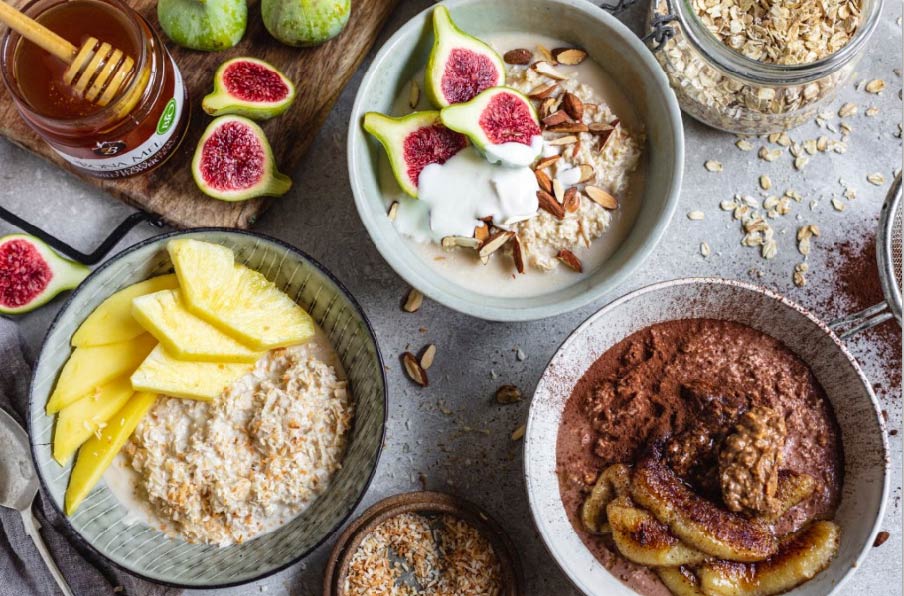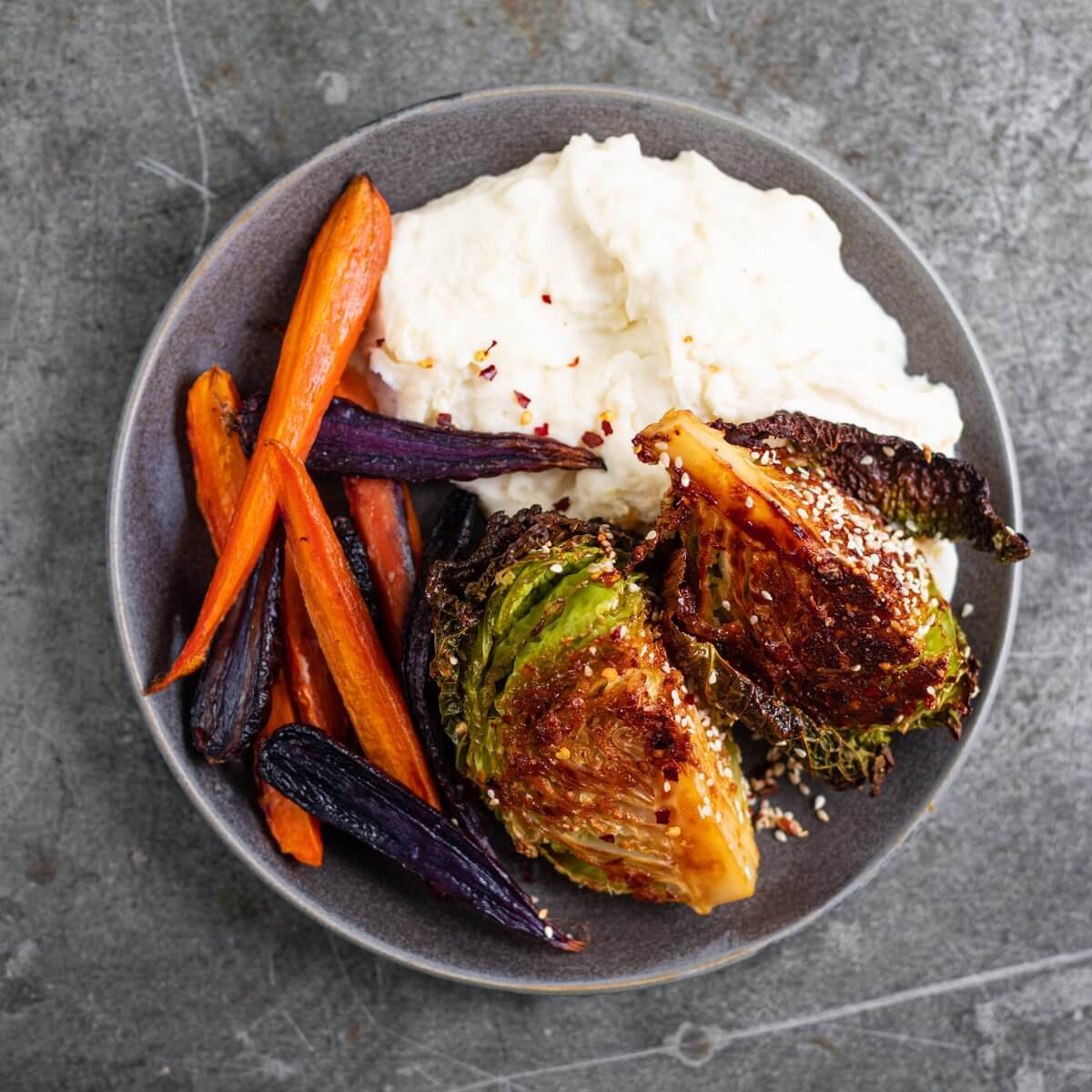In just a few weeks the world will meet in Scotland to agree the best way to meet a target to keep global warming below 2C, ideally 1.5C.
Already there have been promises to shift the world to renewable energy and electric cars. But what about how we eat?
A third of human-caused greenhouse gas emissions are from the food system. To meet the target, each country will have to set out how they intend to reduce emissions from agriculture, food transport and even our daily diets. How will they do it and what will it mean for your breakfast, and every other meal of the day?

Soil
Global soils contain two to three times more carbon than the atmosphere. At the 2015 climate talks in Paris, countries agreed to make more effort to store carbon in the soil. The 4 per 1,000 Initiative asks countries to increase carbon stocks in the soil by four per cent per year. It could mean basic grains found in bread and cereal are farmed in a different way. Many measures are in line with organic farming such as adding compost to the soil and cover crops. Most developed countries have signed up, but the US is yet to join…
Farming
The UN has supported a drive for more agroecological farming as there is good evidence increasing organic matter in the soil absorbs carbon. However, the UN has also supported low carbon farming that is ‘intensive’ such as pig or chicken units that are linked to anaerobic digesters. The corridors of the conference will be full of the debate on how the future of farming can reduce greenhouse gases and be more nature-friendly, as each country makes pledges to reduce emissions from the industry.
Forests
The world’s forests are key to absorbing greenhouse gases. The UN wants rich countries to start paying poor countries to stop deforestation. This should mean a shift away from foods such as palm oil (found in many breakfast cereals), and soy grown on deforested land and used for animal feed. The question is: will these foods be replaced by alternatives or can they be grown in a different way?
Money
Developed countries are under pressure to keep a promise to give $100 billion annually to poorer nations to adapt to climate change. Much of this money will go to helping farmers switch to low carbon farming and cope with floods and droughts. These small farmers produce a huge amount of the food we rely on, such as Fairtrade tea and coffee. Arguably, if they are not given the help they need, these goods could go up in price or have to be replaced.
Meat
Livestock farming is responsible for around 14 per cent of manmade greenhouse gas emissions. Countries will be discussing how livestock farming can reduce emissions and in some cases how consumers can be encouraged to eat less bacon for breakfast. The UN has tentatively supported calls for more vegan foods such as ‘plant-based bacon’. But it has also been accused of allowing the debate to be used by multinationals to promote processed vegan food.
Fish
Alongside soil, oceans are our big carbon sink. But the oceans cannot carry on absorbing greenhouse gases at this rate. Warming water and ocean acidification is killing off fish stocks. If we want to carry on eating kippers and other fish for breakfast, and protect our valuable ocean ecosystems for the long-term, we will need to make global treaties to protect our oceans from global warming and over fishing.
Food waste
Food is wasted between the farm and the retailer and then a huge amount is dumped in the bin as ‘leftovers’. If it ends up in landfill, this food waste produces methane, a potent greenhouse gas. The UN want to help poorer countries improve transport and storage to reduce waste from the farm. Meanwhile, consumers in the developed world must stop dumping breakfast and other leftovers in the rubbish bin and instead re-use and recycle.
Transport
Emissions from transport is one of the biggest contributors to greenhouse gases. Cargo ships are being encouraged to move to biofuels and even use sails to cross the ocean. Could your breakfast arrive by electric car, sailboat or train in future? Air-freight blueberries could certainly be off the menu.
Diet
The UN has been very cautious about backing any particular diet. Instead, it is encouraging a more generalised ‘low carbon’ diet. No one quite knows what this means. But if farming changes, with more emphasis on fruit, veg and nuts, more agroecological farming, and more support of low carbon methods, then our diets will change too. Organic dairy or oat milk latte with a veggie sausage and local organic bread, anyone?
People
A growing movement calling for climate justice will seek to remind leaders at the talk of the need for a fair and just way to tackle climate change. As much of what we eat is picked, packed, made or delivered by workers in precarious jobs, this is a vital part of the discussion.
Failure
What happens if they don’t stop temperatures rising above 2C? The world would see more wild fires, droughts and floods and our food will get a lot more expensive… Breakfast will be the least of your worries.
What changes to the food system would you like to see discussed at COP26 to help the world keep below 1.5C global warming compared to pre-industrial levels?










Changes to the food system that I would like to see discussed at COP26, is to put an end to Fast Food outlets, which produce unhealthy food in vast amounts, usually at the cost of animal welfare, as well as the health of the individual.
Hi Anne, I agree that the impact of fast food is significant. As I wrote in my first book The Ethical Carnivore, the beef in the most well known hamburger chain all comes from UK cattle nowadays. I think a new worry for UK consumers is soy. Greenpeace Unearthed recently did a piece highlighting how soya fed to the dairy cattle is driving deforestation https://unearthed.greenpeace.org/2021/10/13/cargill-deforestation-brazil-uk-dairy-cadbury-cheese/
Cop26 invites and encourages big brands to take part. Many people disagree with this and protest against it. However, the UN is of the view it is better to work with multinationals. They are making noises about cutting carbon in the run up to Cop26 https://www.edie.net/news/9/Fast-food-giants-beef-up-climate-commitments-following-investor-pressure/
So, I’m afraid you are not going to see discussion of how to put an end to fast food outlets within Cop26 (though I think it may be discussed in some of the fringe protest meetings). Instead the discussions that could make fast food outlets less damaging to the environment would centre around how farming can cut it’s carbon footprint through use of agroecology and pressure on nations like Brazil to end deforestation.
I agree that the impact of fast food on our health and the environment is something that needs to change. My best hope is that the discussions at Cop26 influence consumers to move away from eating this kind of food and that in turn leads to more investment in alternatives (inc vegan?!). I will keep my eye out for any discussions where this comes up and tweet about it so follow me @loubgray during the conference.
The whole climate crisis debate is about common sense versus big money/big business. We need, all of us ordinary folk, to make our voices heard in peaceful but assertive protest. We must make this work & do what we need to do now. We are storing up catastrophe for our children, grandchildren & great grandchildren. It is essential that we protest. Governments are not as committed to this as we are.
Hi Suzanne, I’ll be going along with my family on Saturday 6th November to the march through Glasgow to try and make the Governments understand the urgent change people want. Having reported on this for over a decade, I share your frustration in the failure of Government to take the crisis seriously and understand that voters want action. I hope that some of this anger and frustration does come across (peacefully) to those making decisions at Cop26. Not sure if there are any demonstrations where you are but plenty going on https://cop26coalition.org/gda/